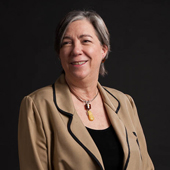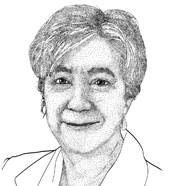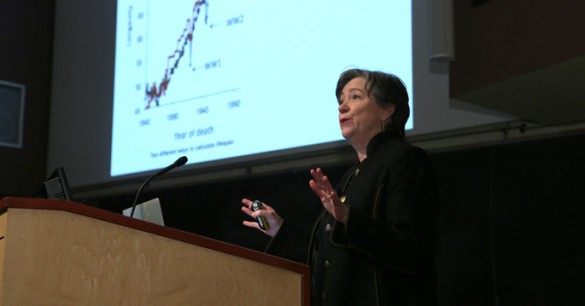Susan Lindquist, Ph.D., a pioneer in the field of protein folding at the Whitehead Institute for Biomedical Research in Cambridge, Massachusetts, is the recipient of the 2014 Vanderbilt Prize in Biomedical Science, Vanderbilt University officials announced this week.

She is the ninth recipient of the Vanderbilt Prize, which honors women scientists with a “stellar record” of research accomplishments who have made significant contributions to mentoring other women in science.
“The selection of Dr. Lindquist as our 2014 Vanderbilt Prize in Biomedical Science winner underscores the importance we place on research innovation and mentorship at Vanderbilt University,” said Lawrence Marnett, Ph.D., associate vice chancellor for Research and senior associate dean for Biomedical Sciences.
“Her groundbreaking science and commitment to mentoring women scientists embody the purpose of the Prize,” Marnett said.
Lindquist is a Howard Hughes Medical Institute investigator with academic appointments at the Whitehead Institute, Massachusetts Institute of Technology (MIT), and the Broad Institute of MIT and Harvard, all in Cambridge.
A recipient of the National Medal of Science, the nation’s highest science prize, Lindquist is among the “most influential scientists of her generation,” Whitehead Institute director David C. Page, M.D., wrote in a letter supporting her nomination.
Her research “has led to paradigm-shifting discoveries in stress tolerance, gene regulation, evolution and protein-folding diseases,” Rockefeller University professor Elaine Fuchs, Ph.D., wrote in her nomination letter.
Recipients of the Vanderbilt Prize, established by Vanderbilt University School of Medicine in 2006, visit Vanderbilt to receive their Prize, meet with faculty and deliver a Flexner Discovery Lecture.
As is tradition with all Vanderbilt Prize winners, Lindquist will mentor the Vanderbilt Prize Scholar, a singular honor for a female graduate student in the biomedical sciences at Vanderbilt University who will be selected via an internal nomination process.
Lindquist earned her bachelor’s degree at the University of Illinois, Champaign-Urbana, and a Ph.D. in Biology at Harvard University. After completing a postdoctoral fellowship at the University of Chicago in 1978, she joined the faculty there. She was appointed Albert D. Lasker Professor of Medical Sciences in 1999.
In 2001, Lindquist was appointed director of the Whitehead Institute, a position she held until 2004. At MIT she currently is professor of Biology and an associate member of the David H. Koch Institute for Integrative Cancer Research.
Lindquist is internationally recognized for providing the definitive experimental evidence for the “prion hypothesis,” which holds that certain genetic traits can be transmitted solely by “prions,” self-perpetuating changes in protein folding, without changes in DNA or RNA.
Prion diseases including Alzheimer’s, Parkinson’s and Huntington’s involve proteins that change their confirmation. By importing several of these proteins into yeast, Lindquist and her colleagues have developed a powerful system to study folding transitions and screen therapeutic candidates.
She also has made major contributions to understanding how “heat shock” proteins guide the cell’s response to toxic stress and protein misfolding. While in graduate school, she published pioneering studies of molecular analysis of heat shock response in Drosophila.
A long-time mentor to women graduate students and postdoctoral fellows, Lindquist also has supported and participated in life sciences programs for girls in middle and high school.
Lindquist’s numerous honors include the Federation of American Societies for Experimental Biology (FASEB) Excellence in Science Award, the Mendal Medal from the Genetics Society of the United Kingdom, and the Max Delbrück Medal in Berlin, Germany.
She is a member of the American Academy of Arts and Sciences, the National Academy of Sciences and the Institute of Medicine.
For a complete list of Vanderbilt Prize winners and the 2015 nomination form, go to https://medschool.vanderbilt.edu/dean and click on “Vanderbilt Prize.”















